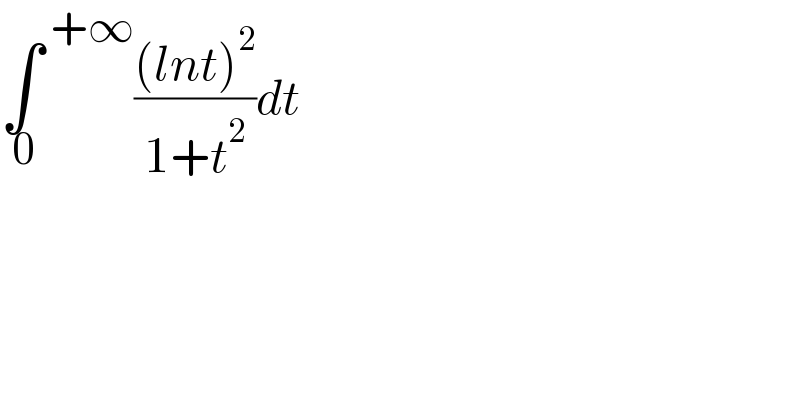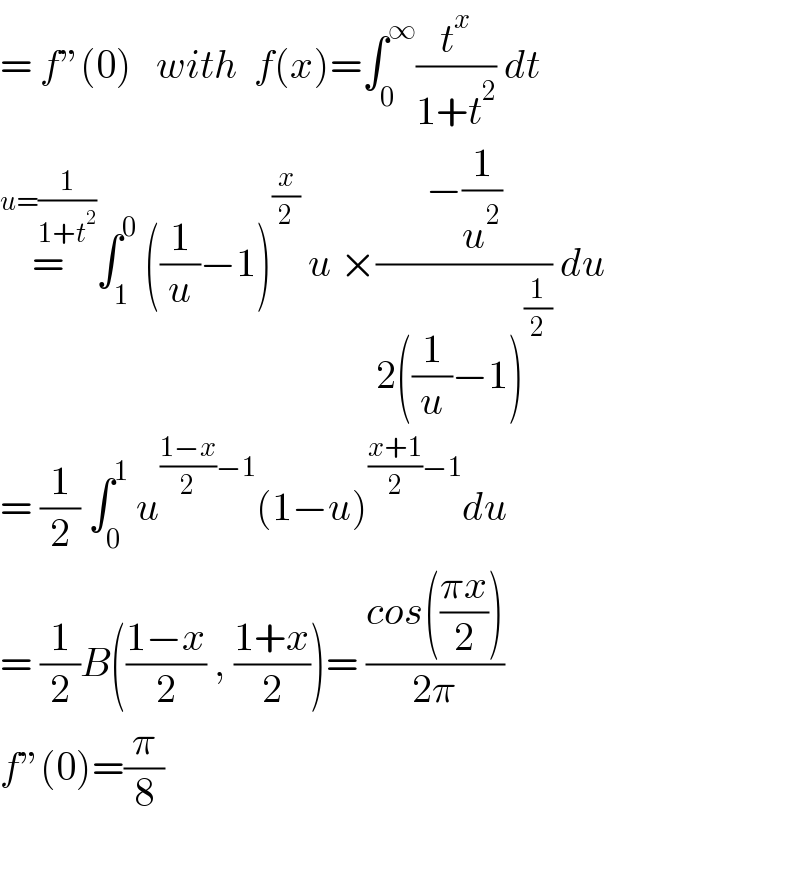
Question Number 196026 by Erico last updated on 16/Aug/23

$$\underset{\:\mathrm{0}} {\int}^{\:+\infty} \frac{\left({lnt}\right)^{\mathrm{2}} }{\mathrm{1}+{t}^{\mathrm{2}} }{dt} \\ $$
Answered by sniper237 last updated on 16/Aug/23

$$=\:{f}''\left(\mathrm{0}\right)\:\:\:{with}\:\:{f}\left({x}\right)=\int_{\mathrm{0}} ^{\infty} \frac{{t}^{{x}} }{\mathrm{1}+{t}^{\mathrm{2}} }\:{dt} \\ $$$$\overset{{u}=\frac{\mathrm{1}}{\mathrm{1}+{t}^{\mathrm{2}} }} {=}\int_{\mathrm{1}} ^{\mathrm{0}} \:\left(\frac{\mathrm{1}}{{u}}−\mathrm{1}\right)^{\frac{{x}}{\mathrm{2}}} \:{u}\:×\frac{−\frac{\mathrm{1}}{{u}^{\mathrm{2}} }}{\mathrm{2}\left(\frac{\mathrm{1}}{{u}}−\mathrm{1}\right)^{\frac{\mathrm{1}}{\mathrm{2}}} }\:{du} \\ $$$$=\:\frac{\mathrm{1}}{\mathrm{2}}\:\int_{\mathrm{0}} ^{\mathrm{1}} \:{u}^{\frac{\mathrm{1}−{x}}{\mathrm{2}}−\mathrm{1}} \left(\mathrm{1}−{u}\right)^{\frac{{x}+\mathrm{1}}{\mathrm{2}}−\mathrm{1}} {du} \\ $$$$=\:\frac{\mathrm{1}}{\mathrm{2}}{B}\left(\frac{\mathrm{1}−{x}}{\mathrm{2}}\:,\:\frac{\mathrm{1}+{x}}{\mathrm{2}}\right)=\:\frac{{cos}\left(\frac{\pi{x}}{\mathrm{2}}\right)}{\mathrm{2}\pi} \\ $$$${f}''\left(\mathrm{0}\right)=\frac{\pi}{\mathrm{8}} \\ $$$$ \\ $$
Commented by York12 last updated on 16/Aug/23

$${Great}\:!! \\ $$
